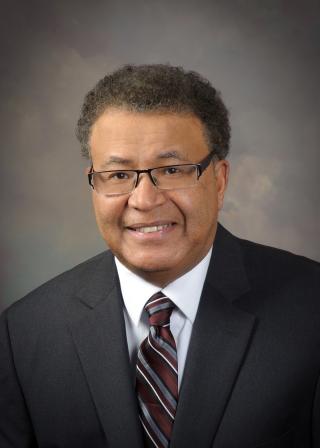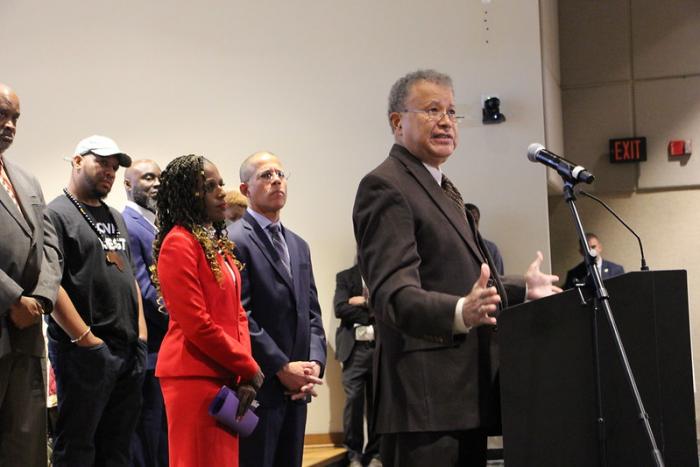UMD Center Tapped to Help State Reduce Mass Incarceration
The Judge Alexander Williams, Jr. Center will lend its expertise to a newly established initiative, the Maryland Equitable Justice Collaborative
The University of Maryland’s Judge Alexander Williams, Jr. Center for Education, Justice and Ethics recently began working alongside state leaders and fellow criminal justice experts to tackle Maryland’s mass incarceration problem.
As part of the Maryland Equitable Justice Collaborative (MEJC), the center will work with Maryland’s Office of the Attorney General, the Office of the Public Defender, and Bowie State University’s Institute for Restorative Justice and Practices to ultimately develop a comprehensive plan to address the racial disparities in the state’s imprisoned population, particularly as it relates to those that wind up imprisoned in the state’s jails. According to a press release from the Office of the Attorney General and Office of the Public Defender, African Americans make up 72% of Maryland’s prison population—the country’s highest share of imprisoned African Americans—despite accounting for only 30% of the state's total population.
“Considering and confronting the role and relationship between social-economic determinants and crime is one part of the solution to this issue,” says the Honorable Judge Alexander Williams, Jr., who heads the namesake UMD center.
 “We haven't addressed the fundamental issues that breed crime, particularly the ones that impact young Black males. There are too many individuals unable to obtain sufficient jobs and employment to support their families. In addition, our educational system has failed to effectively reach many of our students in Maryland, and throughout the country. While there are some people who overcome some of the challenges existing in the environment around them, unfortunately, there are too many who fall prey to the negative challenges,” said Judge Williams. “In order to take away the incentive of people to carjack cars, steal, rob, break the law and commit the other things that lead to arrest and incarceration, we must confront, address and resolve the social-economic factors.”
“We haven't addressed the fundamental issues that breed crime, particularly the ones that impact young Black males. There are too many individuals unable to obtain sufficient jobs and employment to support their families. In addition, our educational system has failed to effectively reach many of our students in Maryland, and throughout the country. While there are some people who overcome some of the challenges existing in the environment around them, unfortunately, there are too many who fall prey to the negative challenges,” said Judge Williams. “In order to take away the incentive of people to carjack cars, steal, rob, break the law and commit the other things that lead to arrest and incarceration, we must confront, address and resolve the social-economic factors.”
Addressing the law as it stands today is another part of the solution, and one with which Judge Williams is quite familiar. Judge Williams was nominated by President Bill Clinton to serve on the United States District Court for the District of Maryland, where he acted as a federal judge for 20 years before choosing to step away and create a center focused on developing comprehensive solutions to ethical questions and systemic challenges.
One of the systemic challenges that Judge Williams has been particularly passionate about is mandatory minimum sentences, which give judges no choice but to send a guilty defendant to jail for a predetermined number of years according to their crime, without any regard for the other factors surrounding the individual and their arrest.
“I had a hand, under the guidelines, of sentencing people to long sentences,” Judge Williams, who penned an op-ed in the University System of Maryland’s faculty newspaper about mandatory minimum sentences’ causes and consequences, said. “A recommendation I am going to insist on is that we reduce minimum sentences and give more authority and power to judges to take a number of factors into consideration in sentencing. Another is to look at some of these laws and see which ones do not necessarily require the penalties that are imposed right now.”
To assess the potential effectiveness of such recommendations, and identify other possible solutions, the Maryland Equitable Justice Collaborative is divided into committees responsible for engaging key government, community and private sector stakeholders in conversation about a particular facet of the mass incarceration equation. Judge Williams is acting as co-chair of the Criminal Law and Sentencing Reform committee.
Other members of the Judge Alexander Williams, Jr. Center team are also involved with MEJC: Karen Bond, the center’s director of strategic partnership and outreach, and Marci Deloatch, the center’s program manager.
“The one aspect that I really like about this collaborative is that it is taking into account various stakeholders from the perspective that we're all, on some level, contributing to the problem,” said Deloatch. “I think we have to be realistic and understand that we won’t be able to necessarily eliminate mass incarceration [in the short term], but I do think we'll be able to really start making some sort of impact on what's happening.”
The main photo of Judge Williams speaking at the inaugural MEJC meeting at Bowie State University is provided by The Judge Alexander Williams, Jr. Center for Education, Justice and Ethics.
Published on Thu, Jan 11, 2024 - 12:42PM




